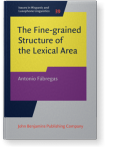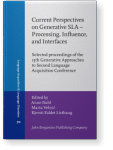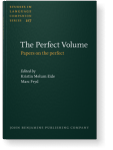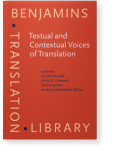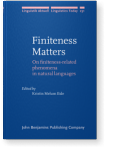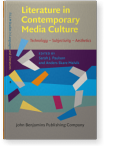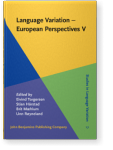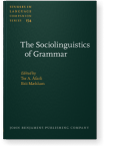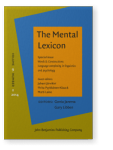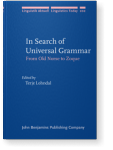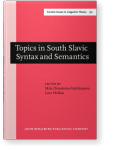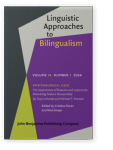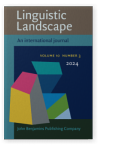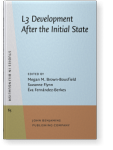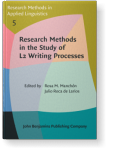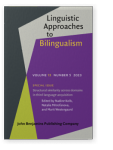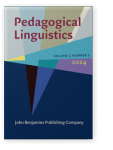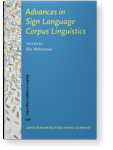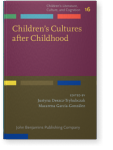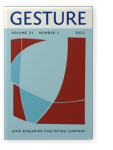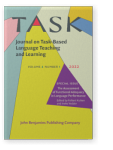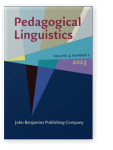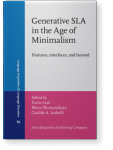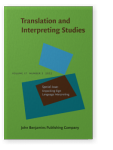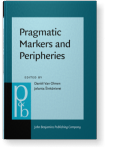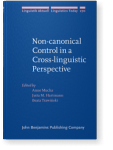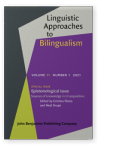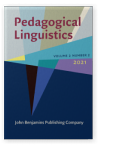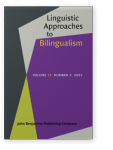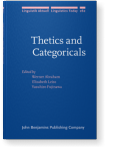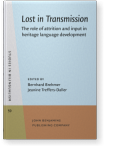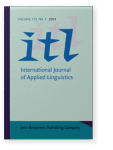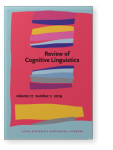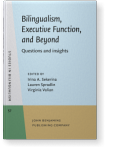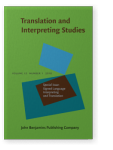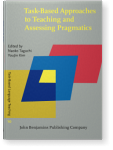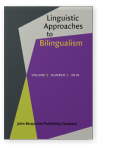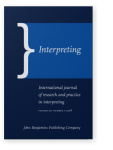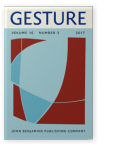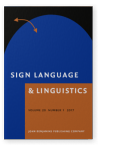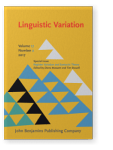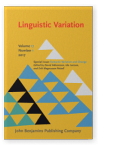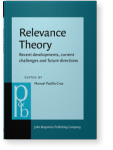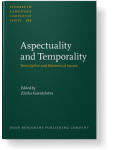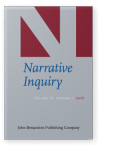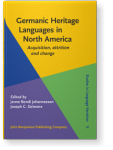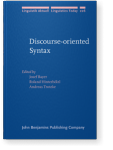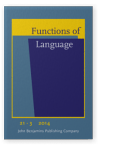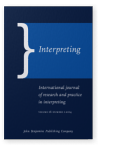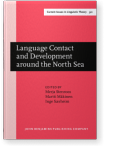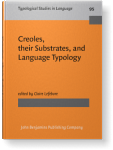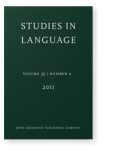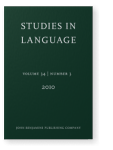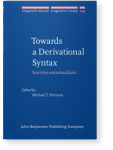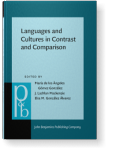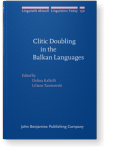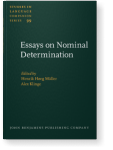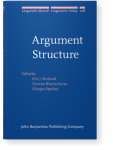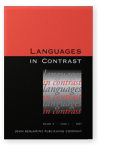Norwegian University of Science and Technology
List of John Benjamins publications for which someone affiliated with Norwegian University of Science and Technology plays a role.
Current Perspectives on Generative SLA – Processing, Influence, and Interfaces: Selected proceedings of the 16th Generative Approaches to Second Language Acquisition Conference
Edited by Marta Velnić, Anne Dahl & Kjersti Faldet Listhaug
[Language Acquisition and Language Disorders, 70] 2024. | edited volumeSubjects Generative linguistics | Language acquisition | Syntax | Theoretical linguistics
The Perfect Volume: Papers on the perfect
Edited by Kristin Melum Eide & Marc Fryd
[Studies in Language Companion Series, 217] 2021. | edited volumeSubjects Semantics | Syntax | Theoretical linguistics
Textual and contextual voices of translation
Edited by Cecilia Alvstad, Annjo K. Greenall, Hanne Jansen & Kristiina Taivalkoski-Shilov
[Benjamins Translation Library, 137] 2017. | edited volumeSubjects Theoretical literature & literary studiesTranslation Studies
Finiteness Matters: On finiteness-related phenomena in natural languages
Edited by Kristin Melum Eide
[Linguistik Aktuell/Linguistics Today, 231] 2016. vi, 346 pp. | edited volumeSubjects Generative linguistics | Semantics | Syntax | Theoretical linguistics
Literature in Contemporary Media Culture
Edited by Sarah J. Paulson & Anders Skare Malvik
[FILLM Studies in Languages and Literatures, 2] 2016. | edited volumeSubjects Theoretical literature & literary studies
Language Variation - European Perspectives V: Selected papers from the Seventh International Conference on Language Variation in Europe (ICLaVE 7), Trondheim, June 2013
Edited by Eivind Torgersen, Stian Hårstad, Brit Mæhlum & Unn Røyneland
[Studies in Language Variation, 17] 2015. xiii, 240 pp. | edited volumeSubjects Historical linguistics | Sociolinguistics and Dialectology
The Sociolinguistics of Grammar
Edited by Tor A. Åfarli & Brit Mæhlum
[Studies in Language Companion Series, 154] 2014. v, 260 pp. | edited volumeSubjects Contact Linguistics | Creole studies | Functional linguistics | Historical linguistics | Sociolinguistics and Dialectology | Theoretical linguistics
Words & Constructions: Language complexity in linguistics and psychology. Special issue of The Mental Lexicon 9:2 (2014)
Edited by Juhani Järvikivi, Pirita Pyykkönen-Klauck & Matti Laine
[The Mental Lexicon, 9:2] 2014. | special issueSubjects Computational & corpus linguistics | Multilingualism | Neurolinguistics | Psycholinguistics | Semantics
In Search of Universal Grammar: From Old Norse to Zoque
Edited by Terje Lohndal
[Linguistik Aktuell/Linguistics Today, 202] 2013. vi, 361 pp. | edited volumeSubjects Germanic linguistics | Historical linguistics | Languages of South America | Theoretical linguistics
Topics in South Slavic Syntax and Semantics
Edited by Mila Dimitrova-Vulchanova & Lars Hellan
[Current Issues in Linguistic Theory, 172] 1999. xxviii, 263 pp. | edited volumeSubjects Balto-Slavic linguistics | Generative linguistics | Semantics | Syntax
2024 The Spanish Computer-Assisted Listening and Speaking Tutor: A multilingual approach to pronunciation training
Revista Española de Lingüística Aplicada/Spanish Journal of Applied Linguistics | Online First Publication, 28 pp. | article
2024 The importance of features and exponents: Dissolving Feature Reassembly
Keywords exoskeletal | exponent | feature | Feature Reassembly | late-insertion
2024 Bergen?: A semiotic landscape analysis of arrival in Bergen, Norway
Keywords art | sound | semiotic landscape | perception | (auto-)ethnography | Norway | Bergen
2023 A shared linguistic system of multilingual representations
Keywords feature | feature bundle | Minimalist grammar | multilingualism | linguistic representations | input | intake | activation
2023 Crosslinguistic influence in L3 acquisition: Evidence from artificial language learning
Keywords morphological similarity | lexical similarity | facilitative transfer | cross-linguistic influence
2023 Verb placement in L3 French and L3 German: The role of language-internal factors in determining cross-linguistic influence from prior languages
Keywords L3 acquisition | cross-linguistic influence | verb movement | V2 | economy
2023 Assessing knowledge of English verb placement and subject-verb agreement among multilingual students in grades 5–7 in Norway
Keywords multilingualism | L3 English | heritage bilingualism | third language acquisition | verb-second | subject-verb agreement
2023 Exploring sign-writing contact and multilingualism in the Norwegian Deaf community
Keywords Norwegian Sign Language | fingerspelling | multilingualism | corpus linguistics | language contact | sign-writing contact
2023 Enacting the tween news viewer: Supernytt and its audience
Keywords children’s news | mutual enactment | children’s voices | sociomaterial
2023 Indexing turn-beginnings in Norwegian Sign Language conversation
Keywords pointing | indexicality | interaction | turn-taking | Norwegian Sign Language
2022 The role of pausing in L2 oral task performance: Toward a complete construct of functional adequacy
Keywords functional adequacy | task | breakdown fluency | silent pausing | filled pausing | rating scale
2022 Why are they so similar?: The interplay of linguistic and extra-linguistic variables in monolingual and bilingual learners of English
Keywords English proficiency | heritage bilingualism | L3 acquisition | multilingual advantages | structural equation modelling
2022 The role of L1 Norwegian and L2 English in the acquisition of
verb placement in L3 German
In: Generative SLA in the Age of Minimalism: Features, interfaces, and beyond: Selected proceedings of the 15th Generative Approaches to Second Language
Acquisition Conference[Language Acquisition and Language Disorders, 67] pp. 191–212
Keywords word order | verb placement | V2 | second language | third language | acquisition | transfer Norwegian | English | German
2023 Interpreters as agents of language planning
Keywords sign language interpreting | ideology | language planning | accessibility | linguistic landscape
2021 The Norwegian tag da in comparison to English
then
Keywords pragmatic particle | tag | multifunctionality | translation | right-dislocation
2021 Event control
In: Non-canonical control in a cross-linguistic perspective[Linguistik Aktuell/Linguistics Today, 270] pp. 197–222
2021 “Have-less perfects” in Norwegian: An Old Norse heritage
In: The Perfect Volume: Papers on the perfect[Studies in Language Companion Series, 217] pp. 365–396
Keywords perfect | infinitival perfect | auxiliary omission | counterfactual | Mainland Scandinavian | Old Norse | disguised infinitive | irrealis infinitive
2021 Norwegian teacher students’ conceptions of grammar
Keywords conceptions of grammar | first-year teacher students | grammar in Norwegian education | grammar knowledge | grammar views | L1 grammar education | grammar confidence | teacher students’ beliefs | prescriptive view of grammar | linguistic knowledge in L1
2021 Variable V2 in Norwegian heritage language: An effect of crosslinguistic influence?
Keywords attrition | crosslinguistic influence | word order | processing | verb movement
2020 Presentational and related constructions in Norwegian with reference to German
Keywords expletive subjects | expletive objects | transitivity | theticity | categoricity | presentationals | light reflexives
2020 Aspectual contrasts in the English present tense revisited: Exploring the role of input and L1 influence
Keywords aspect | feature reassembly | L1 influence | French | English | Chinese | input
2020 Word order variation in heritage languages: Subject shift and object shift in Norwegian
In: Lost in transmission: The role of attrition and input in heritage language development[Studies in Bilingualism, 59] p. 99
Keywords incomplete/differential acquisition | attrition | frequency | complexity | structural overlap | cross-linguistic influence | cross-linguistic overcorrection | syntactic movement | verb second
2020 Words from where?: Predictors of L2 English vocabulary among Norwegian university students
Keywords vocabulary | extramural English | L2 acquisition | English as a second language | English for academic purposes
2020 Making do: Constructing L2 phraseological chunks as complex form-meaning mappings
Keywords cognitive usage-based model | L2 acquisition | phraseological chunks | complexity theory | emergent patterns
2019 Traduire le Voyage comme acte politique: Discours sur la traduction des récits de voyage dans la presse périodique française au tournant des XVIIIe et
XIXe siècles
Keywords travel writing | periodical studies | translation | politics | paratextuality | metatextuality
2019 Language control and executive control: Can studies on language processing distinguish the two?
In: Bilingualism, Executive Function, and Beyond: Questions and insights[Studies in Bilingualism, 57] pp. 147–160
Keywords bilingualism | language processing | executive control
2018 Expressing time through space: Embodying conceptual metaphors in an L1 vs. an L2 signed
language
Keywords signed language interpreting | use of signing space | time lines | interpreter training | metaphor | gesture
2018 Exploring the role of cognitive control in syntactic processing: Evidence from cross-language priming in bilingual children
Keywords Bilingual development | syntactic processing | structural priming
2018 How sign language interpreters use multimodal actions to coordinate turn-taking in group work between deaf and hearing upper secondary school students
Keywords sign language interpreting, multimodal, video-analysis, explicit coordination, turn-taking, role set
2018 Depicting and describing meanings with iconic signs in Norwegian Sign
Language
Keywords Norwegian Sign Language | languaging | gesture | iconicity | semiotic
2017 Describing spatial layouts as an L2M2 signed language learner
Keywords depicting signs | classifier predicates | Norwegian Sign Language | L2 acquisition | M2 acquisition
2018 Object drop and article drop in reduced written register
Keywords pro-drop | written English | telegraphic register | register variation | object drop | article drop
2017 Variation and change in Norwegian wh-questions: The role of the complementizer som
Keywords complementizer | diachrony | dialect syntax | Norwegian | subject questions |
that-trace | variation | verb second |
wh-questions | word order
2016 Agreement is not an essential ingredient of finiteness: Evidence from impersonal sentences in Norwegian dialects and in English
In: Finiteness Matters: On finiteness-related phenomena in natural languages[Linguistik Aktuell/Linguistics Today, 231] pp. 171–188
Keywords agreement | expletive subject | impersonal construction | participle | passive
2016 Contradictory parameter settings in one mind: A case study of a Mandarin-Norwegian bilingual’s acquisition of finiteness and V2 in Norwegian
In: Finiteness Matters: On finiteness-related phenomena in natural languages[Linguistik Aktuell/Linguistics Today, 231] pp. 309–342
Keywords bilingual acquisition | cross-linguistic influence | Mandarin | M-finiteness | micro-cues | Norwegian | word order
2016 Evidentials, genre and epistemic vigilance
In: Relevance Theory: Recent developments, current challenges and future directions[Pragmatics & Beyond New Series, 268] pp. 239–258
Keywords argumentation | comprehension | epistemic vigilance | evidentiality | genre
2016 Finiteness, inflection, and the syntax your morphology can afford
In: Finiteness Matters: On finiteness-related phenomena in natural languages[Linguistik Aktuell/Linguistics Today, 231] pp. 121–168
Keywords auxiliaries | do-support | English | Norwegian | Old English | participle levelling | Rich Agreement Hypothesis | verbs
2016 On two types of result: Resultatives revisited*
In: Aspectuality and Temporality: Descriptive and theoretical issues[Studies in Language Companion Series, 172] pp. 563–596
Keywords aspect | lexical encoding | Resultative | verb semantics
2016 The speaker’s derivational intention
In: Relevance Theory: Recent developments, current challenges and future directions[Pragmatics & Beyond New Series, 268] pp. 33–58
Keywords derivational intention | focus | informative intention | intonation | procedural meaning/information
2016 Homeward bound: Enacted narratives of the return to home after a short-term stay at a psychiatric centre
Keywords narrative-in-action | ethnography | discharge | mental illness | ambiguity
2015 Borrowing Modal Elements into American Norwegian: The Case of suppose(d)
In: Germanic Heritage Languages in North America: Acquisition, attrition and change[Studies in Language Variation, 18] pp. 256–280
Keywords bilingual mind | borrowing | convergence | deontic modality | epistemic modality | evidential modality | matter replication | pattern replication
2015 Translators’ voices in Norwegian retranslations of Bob Dylan’s songs
Keywords Bob Dylan | authenticity | popular music | retranslation | song translation | voice | Bakhtin | Trønder dialect | manifest voice | non-manifest voice
2014 Social and private speech in an interpreted meeting of deafblind persons
Keywords social speech | tactile sign language | deafblind | inner speech | interpreting
2011 Èdó influence on Santome: Evidence from verb serialisation
Keywords Èdó | Santome | verb serialisation
2011 ‘To not be’ or not ‘to not be’: The typology of negation of non-verbal predicates
Keywords non-verbal predication | negation | typology
2011 The linguistics of weather: Cross-linguistic patterns of meteorological expressions
Keywords argument structure | expletive subjects | syntax | meteorological expressions | typology
2003 A relevance-theoretic account of the way we use and understand the English temporal adverb again and its Norwegian counterpart igjen
Keywords procedural semantics | Relevance Theory | English/Norwegian
1997 Creating Transdisciplinary Knowledge: Learning from Working in the Field How Engineers and Social Scientists Can Collaborate in Participative Enterprise Development
Keywords Transdisciplinary | Social Science | Socio-technical Design | Engineering | Action Research. | Cooperation
